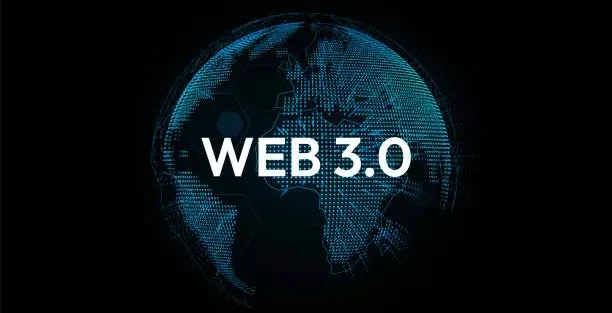The 2024 Proof of Talk event in Paris, France, brought together some of the most influential voices in the Web3 space. Among them were Jenny Johnson, CEO of Franklin Templeton, and Mo Shaikh, founder of Aptos, who shared their insights on how the protocol economy is reshaping global regulatory frameworks.
Banking the Unbanked
One of the most compelling discussions was around financial inclusion. Johnson and Shaikh highlighted the immense potential of Web3 to bank the unbanked population. According to Shaikh, many people are not entirely unbanked but rather excluded from the digital financial economy due to geographical and systemic barriers. He pointed out that with mobile technology, individuals can access financial services that were previously out of reach. “Now with a mobile device, users can have access to financial networks instantly in the palm of their hand, enabling borderless economic flow,” Shaikh stated.
Johnson added that the traditional financial models are often too costly for individuals with minimal funds. “I only have $10 to open a bank account, it’s not enough to access that market. Now, we’re going to be able to allow people with much less money to be able to participate and open accounts,” she explained. This opens the market to more people, providing access to basic financial services and additional options like investment and retirement planning.
Regulatory Evolution
Johnson and Shaikh also discussed the evolving landscape of regulations in the Web3 space. Regulators worldwide are urgently working to establish measures that address the crypto and blockchain industry effectively. Johnson emphasized the progress in Europe with the Markets in Crypto-Assets Regulation (MiCA) and Singapore’s innovative “sandbox approach,” which allows for regulatory experimentation through trials. She praised Hong Kong and the UAE for their proactive efforts to attract blockchain companies.
However, she noted that the U.S. Securities and Exchange Commission (SEC) has been slow to develop comprehensive regulations. According to Johnson, “In the case of the SEC, I think there’s a little bit of a fear of making a mistake. What do you call a security, what you don’t call a security?” She believes the SEC is focused on protecting consumers and is open to evolving its regulatory framework. “They’re really interested in being educated and getting this right,” she added.
Shaikh echoed these sentiments, emphasizing that regulators are in the process of understanding their role in this new market. “Regulators are now thinking about what tools they need to properly regulate and monitor the industry’s digital assets and the companies and projects behind them,” Shaikh said. This adaptation signifies an evolving relationship between the financial industry and regulatory bodies, highlighting the need for new tools to effectively oversee digital assets.
The Future of Web3 and Regulation
The insights shared by Johnson and Shaikh at Proof of Talk 2024 underscore the transformative power of Web3 on global regulatory frameworks and financial inclusion. As Web3 continues to evolve, it offers a glimpse into a future where more inclusive and adaptable regulatory systems support a broader, more equitable digital economy.
The discussions at the Proof of Talk event highlight the significant strides being made in the Web3 space, with a focus on financial inclusion and regulatory evolution. As the protocol economy continues to develop, it promises to bring about a more inclusive and innovative financial landscape.
Stay tuned as we continue to explore the dynamic world of Web3 and its impact on the global economy.





16 Comments
Create a free account
Thank you for your sharing. I am worried that I lack creative ideas. It is your article that makes me full of hope. Thank you. But, I have a question, can you help me?
AceSorcerer
https://t.me/officials_pokerdom/3316
Реферальный бонус на binance
Your point of view caught my eye and was very interesting. Thanks. I have a question for you.
PokerdomNob
https://t.me/officials_pokerdom/3300
AceSorcerer
https://t.me/s/iGaming_live/4866
www.binance.com sign up
I don’t think the title of your article matches the content lol. Just kidding, mainly because I had some doubts after reading the article.
PokerdomNob
https://t.me/s/officials_pokerdom/3999
Cont Binance gratuit
Your article helped me a lot, is there any more related content? Thanks!
Binance注册奖金
Can you be more specific about the content of your article? After reading it, I still have some doubts. Hope you can help me.
MichaelNob
https://t.me/s/mcasino_martin/533
BluffMaster
https://t.me/s/officials_pokerdom/3202
FlagmanNob
https://t.me/s/flagman_official_registration
binance
Thanks for sharing. I read many of your blog posts, cool, your blog is very good. https://www.binance.info/es/register?ref=RQUR4BEO
Thng gii thiu binance
Your point of view caught my eye and was very interesting. Thanks. I have a question for you. https://accounts.binance.com/es/register-person?ref=RQUR4BEO
binance
Thanks for sharing. I read many of your blog posts, cool, your blog is very good.
Binance
Thank you for your sharing. I am worried that I lack creative ideas. It is your article that makes me full of hope. Thank you. But, I have a question, can you help me? https://accounts.binance.com/ph/register?ref=IU36GZC4